Search
Remove Ads
Advertisement
Summary
Loading AI-generated summary based on World History Encyclopedia articles ...
Answers are generated by Perplexity AI drawing on articles from World History Encyclopedia. Please remember that artificial intelligence can make mistakes. For more detailed information, please read the source articles
Search Results
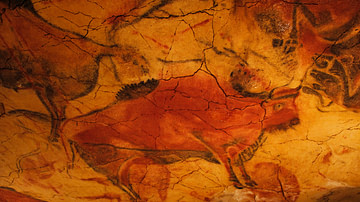
Article
The Meaning of European Upper Paleolithic Rock Art
Rock art (also known as parietal art) is an umbrella term which refers to several types of creations including finger markings left on soft surfaces, bas-relief sculptures, engraved figures and symbols, and paintings onto a rock surface...
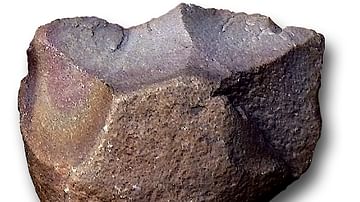
Definition
Oldowan Tools
The appearance of simple stone tools, widely known as Oldowan tools or the Oldowan industry, marked the beginning of our technological revolution. To our knowledge, these artifacts appeared around 2.6 million years ago in the savannahs of...
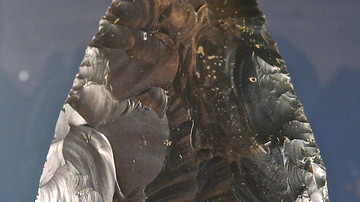
Definition
Paleolithic
The Palaeolithic ('Old Stone Age') makes up the earliest chunk of the Stone Age – the large swathe of time during which hominins used stone to make tools – and ranges from the first known tool use roughly 2,6 million years ago to the end...
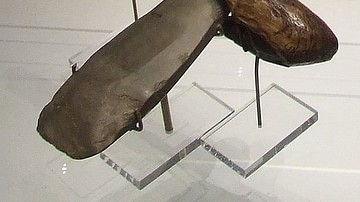
Article
Stone Age Tools
As the Stone Age covers around 99% of our human technological history, it would seem there is a lot to talk about when looking at the development of tools in this period. Despite our reliance on the sometimes scarce archaeological record...

Image Gallery
Paleolithic Art
The first non-functional human-made objects that could be clearly classified as art date back to the Upper Paleolithic (c. 50,000 to c. 12,000 years ago) in Europe. Although Upper Paleolithic art is mostly associated with rock art, besides...

Video
Cave of Altamira and Paleolithic Cave Art of Northern ... (UNESCO/NHK)
Seventeen decorated caves of the Paleolithic age were inscribed as an extension to the Altamira Cave, inscribed in 1985. The property will now appear on the List as Cave of Altamira and Paleolithic Cave Art of Northern Spain. The property...

Definition
Venus Figurine
The term Venus figurine is used to describe the more than 200 small statuettes of voluptuous female figures that have been found at Upper Paleolithic sites across Europe and some parts of Asia. “When paleoanthropologists refer to figurines...

Definition
Stone Age
From the dawn of our species to the present day, stone-made artefacts are the dominant form of material remains that have survived to today concerning human technology. The term “Stone Age” was coined in the late 19th century CE by...

Image
Paleolithic Cave Painting in Altamira Cave
Upper Paleolithic art in Altamira Cave, in Santillana del Mar (Cantabria region), Spain. The paintings in the cave date from the Middle Magdalenian to the Gravettian period.
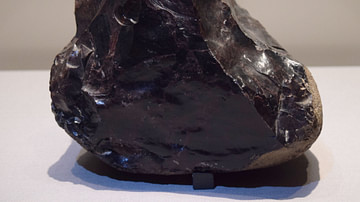
Image
Obsidian used for Prehistoric Japanese Tools
This piece of obsidian dates from the Paleolithic period or c. 18000 BCE, and it was uncovered in Engarau-cho on Japan's Hokkaido island. It helped prehistoric Japanese people in making stone tools. (Tokyo National Museum)